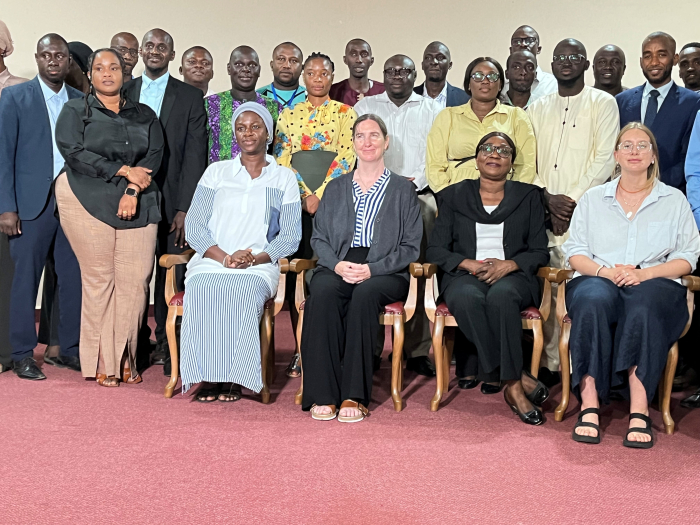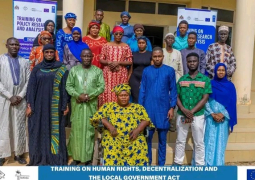
The event held at the Ocean Bay Hotel in The Gambia, was staged with support from the Danish Institute for Human Rights (DIHR), aimed at strengthening the capacity of NHRC Commissioners and staff in addressing the growing human rights challenges linked to climate change.
The training, basically, highlighted the importance of distinguishing climate change from other environmental issues; understanding its impacts and applying human rights principles to climate-related measures and activities.
At the event, participants were also introduced to legal frameworks related to climate change and the environment, as well as a human rights-based analytical tools to help collect and assess relevant data.
Also, the session helped to clarify how the NHRC’s ongoing climate and human rights project aligns with its strategic goals and outlined next steps for its implementation.
In her opening remarks, Jainaba Johm, NHRC Vice chairperson described the training as both timely and essential in view of the fact that it provides an opportunity for the Commission to build the necessary skills and to also fulfill Strategic Objectives 3 and 4 of the NHRC’s Revised Strategic Plan.
Those objectives, she said, focus on strengthening the human rights culture in The Gambia, promoting accountability, monitoring state and institutional compliance, and supporting the development of policies that protect both people and the environment.
Johm underscored the importance of NHRC in ensuring that climate action in The Gambia is rooted in justice, equity, and accountability.
“The Commission has already taken positive steps, such as issuing policy guidance on the right to food and mental health, engaging partners, and advocating for inclusive reforms.’ However, she stressed ‘the need for continued efforts to amplify the voices of vulnerable communities and to ensure that climate adaptation and mitigation policies leave no one behind.’
Kate Griffiths, Adviser on Sustainable Development and Human Rights at the Danish Institute for Human Rights, expressed delight working with the NHRC, acknowledging that climate change is a global issue affecting everyone with The Gambia being especially vulnerable.
She reaffirmed DIHR’s commitment to supporting climate action and finding sustainable solutions in partnership with the NHRC.





